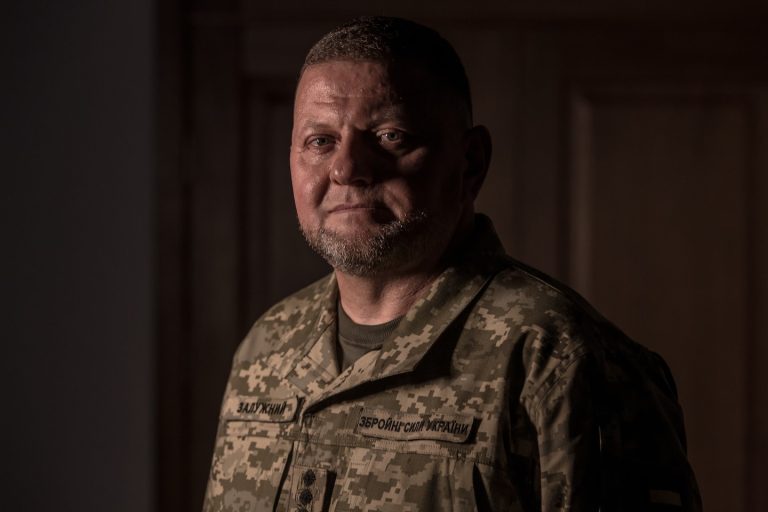Zalozny remains in office for now, but a formal presidential decree is expected to confirm his ouster nearly two years after the Russian invasion, and at a time when Moscow's forces appear to be gaining the strategic initiative in some parts of the front.
Zelensky's spokesman, Serhiy Nikiforov, on Monday denied Zalozny's dismissal. “There is no topic for conversation,” Nikiforov told reporters. “There is no order. The president did not dismiss the commander-in-chief.”
On Wednesday, Nikiforov did not immediately respond to Washington Post messages seeking any updated comment.
The anticipated counterattack, which used soldiers trained by NATO allies and Western weapons and equipment, regained little territory and fell far short of expectations. Zalozny and his American counterparts disagreed sharply over tactics, and the Ukrainian commander ultimately ignored US advice to concentrate his forces, which he believed could have resulted in much greater casualties.
In their conversation Monday, Zelensky told Zalozny that Ukrainians were tired of war and that the country's international backers had also slowed military aid, so perhaps a new leader would revitalize the situation, the person familiar with their conversation said.
Two people spoke about the meeting on condition of anonymity to be frank about the highly sensitive situation that has unpredictable implications for the war and Ukraine's security. Zalozny's senior staff are also expected to be sacked, one of the people said.
At Monday's meeting, disagreements between the two escalated over a disagreement over the number of soldiers Ukraine needs to mobilize this year, according to two people familiar with what happened.
The sources said Zalozny proposed mobilizing nearly 500,000 soldiers, a number Zelenskyy considered impractical given the scarcity of uniforms, weapons, training facilities and potential challenges related to recruitment. Zelensky has also said publicly that Ukraine lacks the funds to pay so many new recruits.
Zalozny responded that Ukraine was already suffering from a troop shortage due to mounting casualties and needed to keep up with the 400,000 new troops Russia plans to mobilize, one of the people familiar with the conversation said.
It was not immediately clear who would replace the 50-year-old Zalozny. One of the leading candidates is the head of Ukraine's military intelligence, 38-year-old Lieutenant-General Kyrylo Budanov, which may signal a move toward asymmetric tactics in a war in which the front lines have seen little change in more than a year. But Budanov, who has a background in special forces, has no experience as an army commander.
The other option is Colonel-General Oleksandr Sirsky, commander of the Ukrainian Ground Forces, who was credited with leading the defense of Kiev in the first month of the war and then coordinating a successful counteroffensive in the northeastern Kharkiv region in the fall of 2022.
Zalozny was offered another position but declined and plans to retire from the military, according to the senior official. Reached by The Post, Zalozny declined to comment.
At present, he remains in the top position, and the official order to remove him may be delayed. Last year, the head of Zelensky's bloc in parliament announced that Oleksiy Reznikov, then Defense Minister, would be fired, but Reznikov remained in the position for several months before being dismissed.
The source said that friction between Zelensky and Zalozny had been brewing for months, and the general expected the possibility of his dismissal as early as the summer of 2022.
Zalozny has been the supreme leader of Ukraine since the Russian invasion in February 2022, and according to opinion polls, he is competing with Zelensky in popularity, making him a potential political threat if presidential elections are held. Elections are currently banned in Ukraine due to martial law, but under normal circumstances they should have been held this year.
Although Ukrainian officials have privately hinted at mistrust between Zalozny and Zelensky over the past year, the rift has come to light in recent months. Last fall, Zalozny referred to the war as a “stalemate” in an interview with The Economist. Zelensky publicly rebuked those remarks.
Another source familiar with Monday's meeting said another source of tension was the gap between what Zalozhny asked of the Ukrainian military and what political leaders in Kiev were able to extract from allies and partners. In conversations with the Defense Minister, he says: It is not my job to get this; “It's your job,” the person said.
Proposed aid to Ukraine was halted in Washington and Brussels due to internal political differences in the United States and the European Union.
House Republicans rejected a White House request for an additional $60 billion related to the war in Ukraine.
Hudson reported from Washington. David L. Stern contributed to this report.

